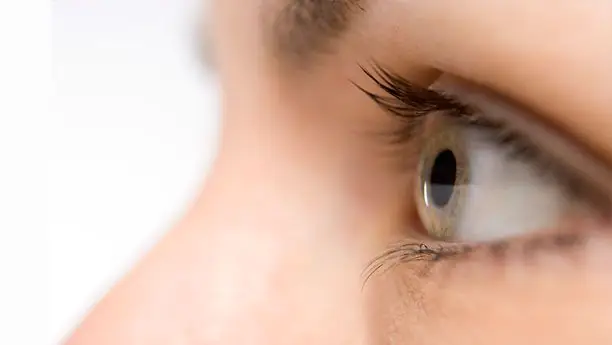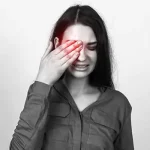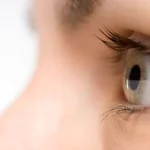Your eyes are vital to daily life, yet their health is often overlooked until problems arise. Recognising the early signs of poor eyesight is essential for protecting your vision and addressing potential issues before they worsen. From subtle changes in clarity to noticeable discomfort, declining eyesight can manifest in various ways.
At Centre for Sight, we are dedicated to educating you about the low eyesight symptoms and providing solutions to maintain your vision. Let’s explore the key warning signs of weakened eyesight, their underlying causes, and steps you can take to address them.
Symptoms of Bad Eyesight
Blurred or Distorted Vision
One of the most common symptoms of bad eyesight is blurred or distorted vision. This can occur when viewing objects at a distance, up close, or in both scenarios. It may indicate refractive errors such as:
- Myopia (Nearsightedness): Difficulty seeing distant objects.
- Hyperopia (Farsightedness): Difficulty focusing on close objects.
- Astigmatism: Blurry or distorted vision due to an irregularly shaped cornea.
What to Watch For?
- Frequent squinting to see clearly.
- Trouble focusing on text or objects.
- Blurred vision that worsens over time.
If you notice persistent blurriness, consult an eye specialist to identify the reason of weak eyesight and explore corrective options like glasses, contact lenses, or refractive surgery.
Eye Strain and Fatigue
Another telltale sign of poor eyesight is frequent eye strain or fatigue, especially after extended periods of visual focus. This is often associated with activities like reading, using digital devices, or driving.
What Causes Eye Strain?
- Prolonged screen time (Digital Eye Strain).
- Poor lighting conditions.
- Uncorrected refractive errors.
Low Eyesight Symptoms Related to Eye Strain
- Aching or tired eyes.
- Headaches after visual tasks.
- Sensitivity to light.
Taking regular breaks and following the 20-20-20 rule—looking at an object 20 feet away for 20 seconds every 20 minutes—can alleviate strain and support eye health.
Frequent Headaches
Headaches are a subtle but significant indicator of weakened eyesight. Straining your eyes to focus can lead to tension headaches, particularly around the forehead and temples.
Signs to Look Out For
- Persistent headaches after reading or screen use.
- Pain that intensifies with prolonged focus.
- Headaches that improve after resting your eyes.
If you’re experiencing these symptoms of bad eyesight, schedule a comprehensive eye exam to determine whether corrective lenses are needed.
Difficulty Seeing at Night
Struggling with night vision or driving in low-light conditions is a common sign of declining vision. This condition, known as nyctalopia or night blindness, can result from various factors, including:
- Vitamin A Deficiency: A key nutrient for maintaining the retina’s health.
- Cataracts: Clouding of the eye’s natural lens.
- Refractive Errors: Uncorrected vision issues become more pronounced in low light.
Low Eyesight Symptoms at Night
- Halos around lights.
- Difficulty adjusting to darkness.
- Increased glare from oncoming headlights.
Improving your diet, wearing anti-glare lenses, and addressing underlying conditions can help enhance night vision.
Double Vision or Visual Distortions
Double vision, also known as diplopia, is a concerning sign of poor eyesight that should not be ignored. It can result from issues ranging from uncorrected refractive errors to more serious conditions like:
- Strabismus: Misalignment of the eyes.
- Corneal Irregularities: Scarring or damage to the cornea.
- Neurological Disorders: Conditions affecting the optic nerve or brain.
Symptoms of Bad Eyesight Related to Double Vision
- Seeing two overlapping images.
- Difficulty focusing on objects.
- Sudden changes in vision clarity.
If you experience double vision, consult an ophthalmologist immediately to rule out serious underlying causes.
Other Common Causes of Weakened Eyesight
Here are some common contributors to declining vision:
- Ageing: Natural changes in the eyes, such as presbyopia or cataracts, occur with age.
- Prolonged Screen Time: Excessive use of digital devices leads to digital eye strain.
- Poor Nutrition: Lack of essential nutrients like vitamin A, C, and omega-3 fatty acids can weaken eye health.
- Chronic Conditions: Diabetes, hypertension, and other systemic illnesses can impact vision.
- Genetics: Family history of eye diseases like glaucoma or macular degeneration increases risk.
By addressing these factors proactively, you can reduce the likelihood of developing symptoms of bad eyesight.
Preventing Signs of Poor Eyesight
Taking preventive measures is the best way to maintain clear vision. Here’s how you can protect your vision:
Regular Eye Exams: Routine eye check-ups can detect vision issues early and provide timely intervention.
Proper Screen Habits: Limit screen time, use blue-light-blocking glasses, and follow the 20-20-20 rule to minimise strain.
Balanced Diet: Consume foods rich in vitamins A, C, and E, as well as omega-3 fatty acids, to support eye health.
Protect Your Eyes: Wear sunglasses with UV protection and safety goggles during high-risk activities.
Stay Hydrated: Proper hydration prevents dry eyes and supports the tear film’s function.
When to See an Eye Specialist
If you notice any of the signs of poor eyesight mentioned above, it’s essential to consult an eye care professional. Delaying treatment can lead to worsening symptoms and long-term complications.
Take the first step toward healthier, more beautiful eyes Book an Appointment with Centre for Sight in India!
Frequently Asked Questions
Symptoms include blurred vision, frequent headaches, eye strain, difficulty seeing at night, and double vision.
Common causes include aging, prolonged screen time, poor nutrition, chronic conditions like diabetes, and genetics.
Maintain a healthy lifestyle, eat a nutrient-rich diet, protect your eyes from harmful UV rays, and schedule regular eye exams.
If you experience persistent symptoms like blurred vision, double vision, or difficulty seeing at night, consult an eye specialist promptly.





